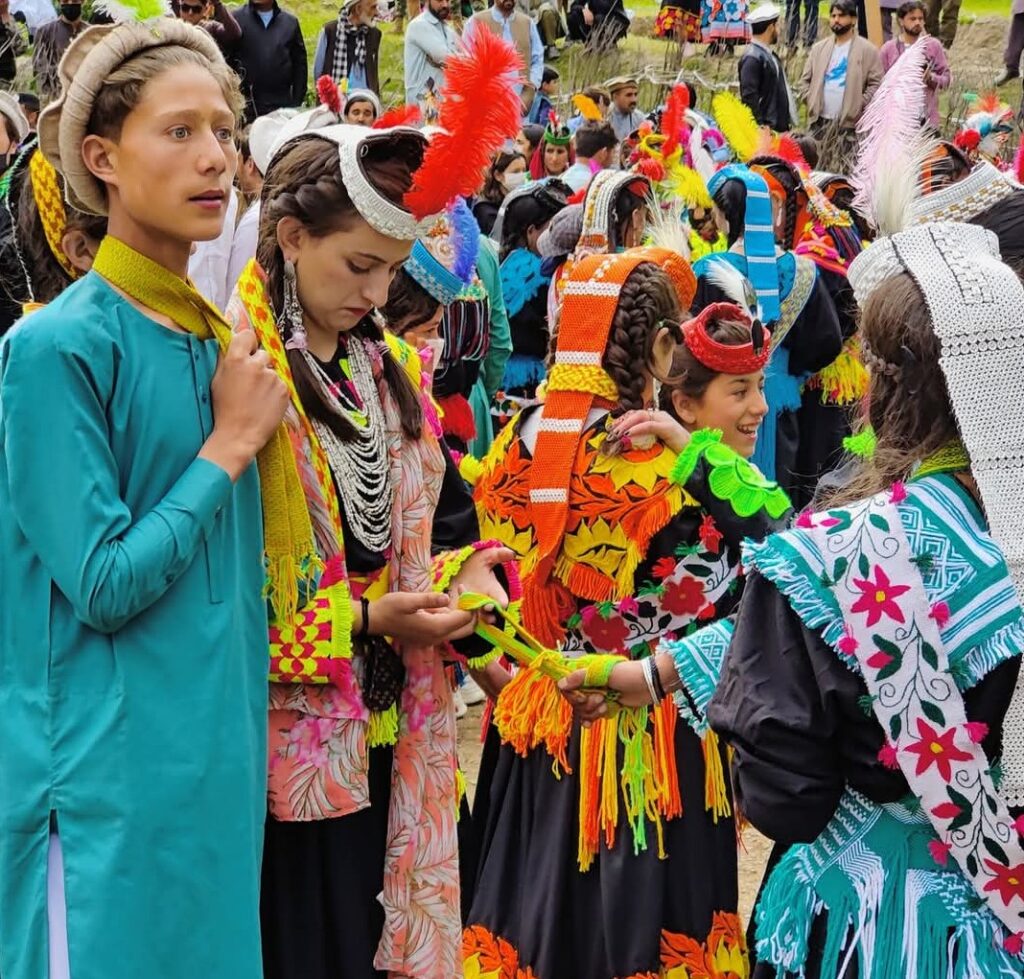PESHAWAR – The August light in Chitral is unforgiving—sharp, golden, and heavy with heat. On the terraced slopes of Bumburet, the Kalash bend to their harvest. Wheat stalks fall in rhythmic sways of the sickle, laughter bounces off the walls of the valley, and soon, bundles of grain are carried down toward the villages.
It is a ritual act, as old as the tribe itself. With it, the Uchal Festival begins.
For three days, from 20 to 22 August, the Kalash people step into a time suspended between labor and celebration. Outsiders arrive expecting a spectacle—drums, dancing, color, and song. And indeed, they find it. But for the Kalash, Uchal is not performance. It is gratitude: to the sun, to the grain, and to the fragile thread of life that binds them to these mountains.
Also Read: Chilam Joshi Festival: A Vibrant Celebration of Kalash Culture
Dance as Prayer
By the second evening, Rumbur comes alive. Young men and women, dressed in black robes embroidered with bright threads of orange and green, gather in wooden halls. They move in circles, feet thudding against the earth in perfect rhythm with the drums. Flutes rise and fall like birdsong carried on the wind. Tourists watch from the corners, cameras ready, but the dance pays them no heed. These movements belong to the gods, not the guests.
The final night stretches into dawn. Stars wheel silently above the ridges of Chitral, while below, the valleys beat with sound. Stories are retold, old songs are sung, and children stay awake far longer than usual, their eyes wide as they inherit memory through melody. By the time the drums quiet, Uchal has sealed another year into the Kalash calendar.
Fragile Survival
This is how a people numbering only a few thousand endure. Across three valleys—Bumburet, Rumbur, and Birir—the Kalash mark the seasons with ritual. Spring arrives with Chilimjusht, winter closes with Chawmos, and summer’s height is given to Uchal. Together, these ceremonies form not only a cycle of worship but a map of survival.
Yet fragility shadows the joy. Anthropologists have warned for decades that the Kalash way of life—with its polytheistic faith, its seasonal rhythm, its refusal to dissolve into surrounding uniformity—remains under constant threat. Modernity presses in from every road and screen. Still, the tribe resists by holding fast to the very things that set them apart. Every festival becomes not just celebration, but defiance.
In Bumburet, as the wheat was carried home and the music spilled into the warm night, an elder put it without ornament: “Uchal is thanks. Without thanks, there is no blessing. Without blessing, there is no life.”
The words hung in the air like truth older than scripture. For the Kalash, gratitude is not a ritual to be performed—it is a rhythm, as steady as a drumbeat, by which their valleys continue to breathe.












